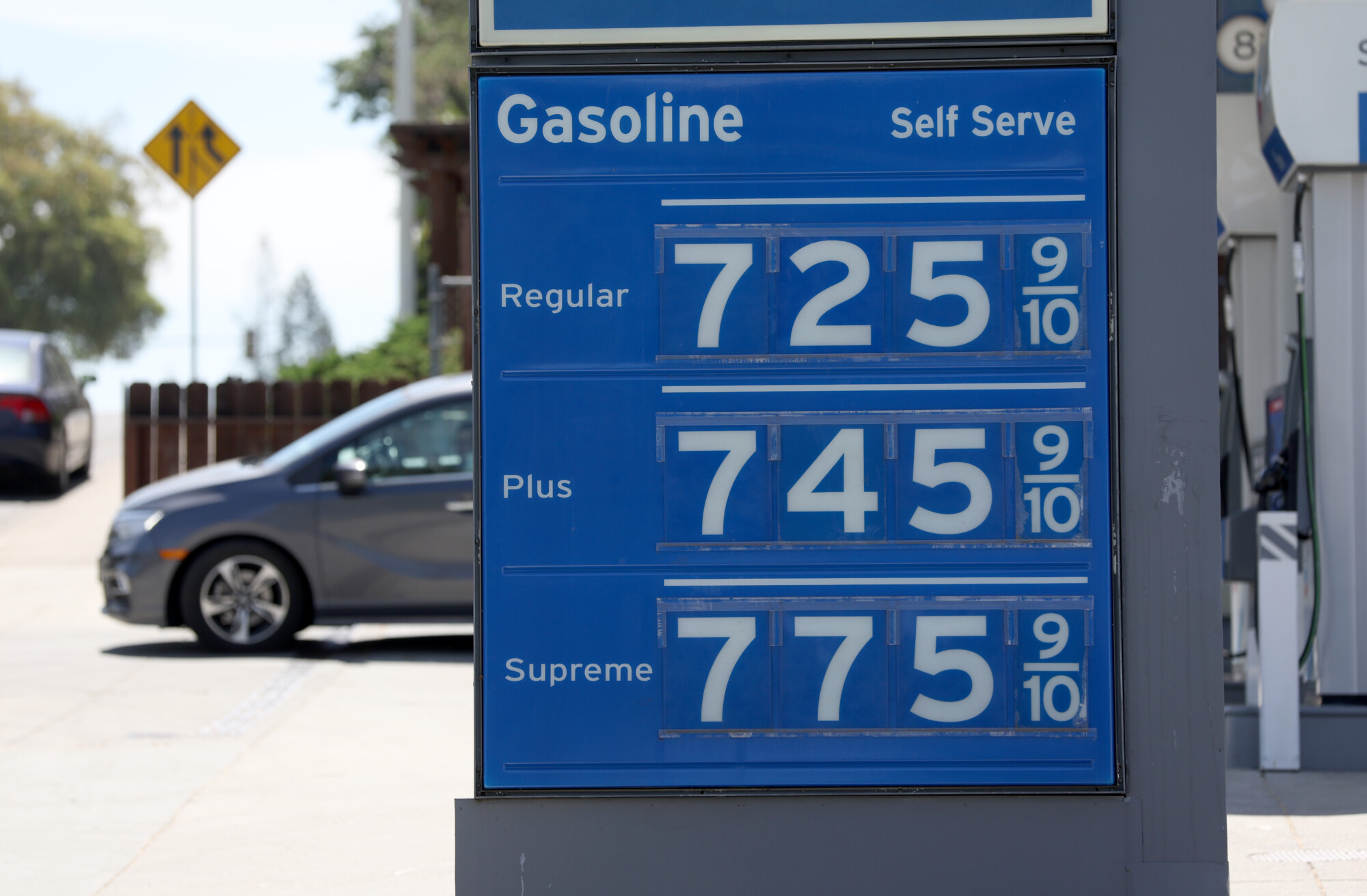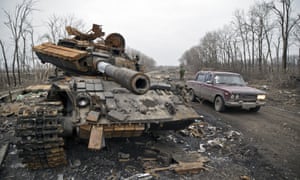When I was growing up in the 1960's, we had something called "gas wars" where service stations, often located across the street from one another, would engage in price war to attract customers, even if it was just by a penny, to see who could go the lowest. That ended with OPEC's oil embargo in 1975.
Today, we're engaged in another "gas war", but this time it's energy giants who've partnered up with government versus us---the American consumer. If you've bought gas recently you've no doubt been stunned by the prices. People drive dozens of miles just to try and save a few pennies on the gallon.
According to a recent survey of gas stations, one in five are now charging a minimum of $5.00 a gallon for regular and could reach $7.00 by the end of Summer in spots. Premium is going for as much as $10.00 a gallon and may reach $12.00 or higher in some places. By the way, gas prices have increased 63% increase thus far over last year (and yes, Donald Trump was still president then).
If we listen to the politicians, especially those like President Biden or Nancy Pelosi, they want to lay the blame at the feet of Russian President Putin or on China's expansionist foreign policy. A few blame the volatile stock market, while others say it's our strained energy grid, Covid, or supply chain. Some want to blame the domestic policies of President Trump or even on consumers! Anybody but them.
But what's the truth? Who's fault is it that we're paying $5.00 dollars or more for a gallon of gas? Who is responsible for the war on the American consumer? After some extensive research, I may have the answer, or rather, the answers. A lot of other analysts happen to agree as well. Something as complex as energy production, a slumping economy, and rising prices aren't likely to have a single cause. As an aside, while I've numbered the primary causes, they are ranked in no particular order.
1. The war in Ukraine. Some analysts claim the central reason for the dramatic rise of gas prices is the war in Ukraine by Russia. Russia is a huge supplier of oil and gas, especially to Europe which receives around 40% to 60% of its supply from Russia. The countries of Estonia, Finland, Slovakia, Lithuania and Poland get 75%+ of their energy needs from Russia.
Germany, Europe's economic engine and the world's fourth largest economy, gets as much as 70% of its oil and gas from Russia. China, the second largest economy gets about 20% (China is expected to surpass the U.S. economy within the next ten years, if not sooner). Even the U.S. gets about 8% from Russia. Europe gets 45% of its natural gas from Russian fields in West Siberia.
Ironically, every NATO member, whose job is to defend Europe against Russia are actually dependent on Russian exports. Turkey gets 45% of its oil and gas from Russia---17% of its oil and 40% of its gas.
Much of Russia's petroleum supply comes from Siberia, which has been more accessible thanks to a warming climate and melting permafrost, and increasingly from the Russian Arctic. Russia is also accessing oil and gas from the Crimea with its vast reserve in the Black and Azov seas.
Nevertheless, Russia's invasion of Ukraine in February of 2022 has caused a disruption of not just oil and gas production, thanks primary to U.S. lead sanctions and not the war itself. Europe has adopted a partial ban on Russian oil and gas as well as shipping insurance on oil imports. Whereas Russia is Europe's chief supplier, Europe is now more reliant on the United States, Middle East, and West Africa than ever (Turkey previously announced that it would not honor any sanctions and would continue to import Russian oil and gas). That additional demand has triggered an increase in price.
2. Covid and the Quarantine/Breakdown of the Supply System. Covid, which made its appearance in 2019, has had a devastating affect on the world's economy by bringing production to a near standstill. Shipments already in route were left severely backlogged. However, with the ease of restrictions, ports and warehouses reopened to 30%+ more traffic but with 28% fewer workers. It's chaos.
In what has become known as "The Great Resignation", millions have refused to go back to work for a variety of reason ranging from refusal to get the mandatory vaccine to low wages and mistreatment by management. Many prefer the flex-hours and working from home.
In addition, because of uneven policies applied by the U.S. government, small businesses were forced to shutter during the pandemic while large mega-stores were allowed to remain open. The result has been the permanent closure of thousands of "mom and pop" businesses, which have traditionally been the backbone of our economy.
Although most Covid restrictions have been dropped, millions of jobs remain empty. There are currently 11.4 million job openings. Shelves are still empty, and shortages are still commonplace. Many businesses have reduced hours, close early, raised wages and prices (which are picked up by the consumer), and even offered same day pay as an enticement.
To make matters worse, the supply chain is dependent on over-the-road truck drivers, many of whom are independent. However, the cost of owning one's own rig has skyrocketed; everything from the cost of insurance to the cost of diesel fuel, which has gone from an average of $2.39 a gallon in May 2020 to $5.57 in May 2022 (which increased $2.00 since the first of the year). In addition, shippers try to get by with paying less per diem or less per load and faster turnarounds, making it tougher to make a living.
AAA has reported that this summer 81% of those surveyed plan to travel this summer. 18% by air and 39.2% by car (this was before the price increases). This would add to the demand for gas, which will again drive up prices, especially around the usual tourist destinations.
According to the U.S. Department of Transportation's Bureau of Transportation Statistics, the cost of jet fuel has jumped in price, marking an eight year high already this year. This affects everything from the price of a ticket to the cost of shipping a package. That doesn't include a shortage of pilots or mechanics.
3. The Cancellation of the Keystone Pipeline. You hear politicians make promises all the time about what they're going to do on their first day in office. Well, Joe Biden was one of the very few to live up to his promise, which was to cancel the Keystone Pipeline Project.
Simultaneously, he sent a message to "whomever it concerns"--- there will be no new pipelines anywhere. Biden has also stopped the sale of leases to permit drilling on federal lands or allowing any new offshore drilling (and yes, that includes Alaska and Texas).
Biden recently quipped on the late night show "Jimmy Kimmel Live" (June 8, 2022), that oil producers are refusing to increase demand. That's a lie, even by political standards. Biden's energy plan is very simple. It's to force American's away from fossil fuels no matter the cost we have to bear. By reducing supply, he is by default triggering a rise in the price of gas and oil.
4. Breaking Our Fossil Fuel Habit. House Democrats have also made it clear that they will prohibit bank loans to any new or expansion of fossil fuels production. Biden's plan is to force American's away from fossil fuels by making it more expensive for Americans to drive unless, of course, they are willing to switch to all electric/battery or hybrid vehicles. For most Americans, that means taking out a loan and going deeper into debt, which the majority of Americans can't afford to do (or simply unable to do).
Biden's Secretary of the Interior, Debbie Haaland, still insists that gas prices aren't high (perhaps she means by what they're going to be by the end of the year). Electric cars (aka "EV" for electric vehicles) get about 200 miles to the charge and much less during cold weather according to Consumer Reports, who also point out that charging stations are still rather rare (about 10,000 nationwide compared to about 145,000 gas stations), 1/4 aren't working at any given time.
As an aside, this 200 miles per charge is not "city" driving and it's about half the distance of the average gas consuming car, meaning we get half the mileage. While currently many of these recharging stations are free, it's anticipated that most, if not all, will carry some sort of fee as more come online. The FTC has stated that the rising prices are the result of decreasing supply and little else.Additionally, in order to produce these "electric stations" which electric cars needs, there has to be an increase in coal and other fossil fuel production, which has to be converted into electricity. So, please tell me how that benefits the environment? How does that reduce our consumption of oil, coal, and natural gas? Finally, these same utility companies which are making billions in profits are the ones all set to cash in on this supposed transition of our energy consumption.
5. Good Old Fashion Greed. Despite the war in the Ukraine, inflation, Covid and quarantine, a broken supply system, a reduction in oil and gas production, energy companies are raking in the profits thank you very much. Chevron has seen a $6.3 million profit in the last quarter and is up $1.4 billion dollars over last year. Dutch Shell reaped a $9 billion profit while BP racked up $6.2 billion so far. Exxon Mobil reported a profit of $5.48 billion, which is double over last year.
Oil companies are seeing profits that they haven't seen in over a decade. Various public watchdog groups such as Public Citizen and BailoutWatch, has documented $56 billion in new buyback authorizations since last October as compared to a "mere" $11 billion for the previous nine month period. In fact, the top energy producers made $100 billion dollars just in the first quarter of 2022.
Meanwhile heating oil and gas, along with utilities are expected to skyrocket; all of which driving up inflation (heating oil is expected to double in price over last year) Utilities will increase between 8% and 23% over 2021 (Kentucky is expected to see a 14% increase while Indiana will see a 9% increase for instance). How does that make you feel? Good?
6. The Blind Shuffle. The "blind shuffle" was a old carnie dice game using a single dice which got its start back in the days of Vaudeville. Without going into details, it operated similar to the old shell game but involved a single dice. No matter what dice you picked, you lost. That's what's happening to the American Public. We're being played. No matter who we elect, we lose.
Biden is genuinely unconcerned with the growing inflation and paying more for less. He's equally oblivious to rising gas prices. His aim is forcing Americans into deeper debt by buying electric cars (while the ruling elite go about their business in gas guzzling and polluting private airplanes, and big limos).
Why should Biden and the ruling Oligarchy be concerned? He uses Trump, Republicans, climate change, Covid, the quarantine and the ruptured supply chain as excuses that the media sprinkles about like glitter. Meanwhile, the oil and gas companies are making obscene profits, along with the ruling class, which includes Congress and Wall Street, who are rolling in it too.
7. Conclusion (or the "Let Them Eat Cake" Scenario). I'm sure anyone who ever took a European History class knows the story of Marie Antoinette, the Queen of France. For those in need of a quick refresher, the year was 1793. The peasants throughout France were revolting thanks to poverty, rising prices, unfair laws, the lack of decent food, no jobs, and substandard housing.
Marie Antoinette, like the elites of her time (including clergy) were totally oblivious to the plight of the peasants. When asked what the peasants should do, she said "Let them eat cake" (actually it was "brioche", a expensive sweet roll), which she thought was still available and affordable. It wasn't.
That remark, which led to her beheading along with her hubby, King Louis XVI, and most of the elites, seemed to sum up the revolution. Ever since it has served as indicator of the elite's insolence and haughty distain towards the working class. Sometimes, it's not so good to be king...or queen.
The rising gas and oil prices are by design. It's being engineered. President Biden has all but said as much. The same for inflation. Biden is trying to force the American People off of fossil fuel, and at the same time, further into debt by purchasing electric cars (the average American family is already in debt to the tune of around $155,500). Who benefits?The oil and gas companies, who are already making billions in profits, will make even more since they're responsible for producing the electricity needed to "fuel" the charging stations which they'll supply and/or own, which means more coal and fuel. Auto manufacturers like Elon Musk's "Tesla" benefit. Electric cars are expected to be at least a $350 billion dollar business (of the top 30 EV producers, half are headquartered in California, followed by Massachusetts, Colorado, and New York). The banks benefit thanks to low interest government loans and increased consumer debt. Who loses? You do. So do I.
Those unable to afford an electric car will either have to pay sickeningly high gas prices, curtail travel, or depend on public transportation, which you can bet will be all electric. Meanwhile, utility rates will skyrocket, forcing Americans onto "managed use" plans. "What's that?" you ask. Those are monitoring devices which are attached to your meter. They regulate and control your usage of electricity.
Expect the same thing will happen to water usage (did you know that in some locations, it's illegal to own a rain barrel? Yelp. It affects what they can charge for "runoff fees"). It's also illegal in some places to use a well for drinking purposes or have a septic tank? The water company doesn't make money.
In addition, you'll be responsible for them extending the appropriate lines to your property plus paying a connection fee! As for solar and wind panels, while they generally work, don't look for earning an "buyback" fees from the utility companies. That's all a thing of the past. This is how we get permanently trapped in the Corporatocracy's web, whether we like it or not. Welcome to the machine.
If you want to know more, please take a look at the links below. If you enjoyed the article, please consider passing it along to others and don't forget to subscribe. It's free! Lastly please be sure to "like" us on whatever platform you use to read A/O. It helps with the algorithms and keeps our articles in circulation. Thank you!
Why US gas prices are at a record, and why they'll stay that way for a long time
The Heat Is On: Memorial Day Forecasts Points to SizzlinSummer Travel
The Real Reason Behind Surging Gas Prices
Jimmy Kimmel Live: President Joe Biden
Gas prices too high? It's all part of Biden's plan to eliminate fossil fuels
Oil Companies Posted Huge Profits. Here's Where The Cash Will Go (Hint: Not Climate)
Get Ready for Another Energy Price Spike: High ElectricBills
Amid rising prices, American families fall deeper in debt














